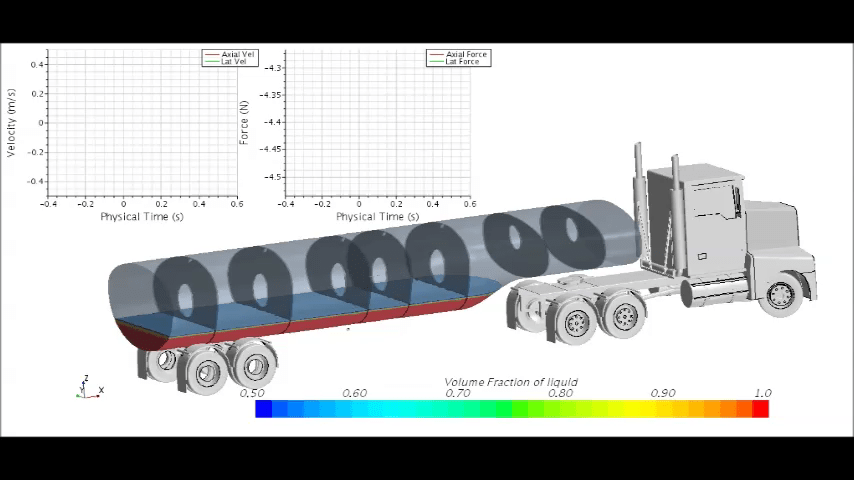Neya Systems has been awarded a 12-month, $1-million contract from the Defense Advanced Research Projects Agency (DARPA) to develop new driver-assistance technologies for vehicles used for fuel and water delivery. Under this effort, Neya aims to enable passenger-car drivers to safely operate large tanker trucks and truck-trailer combinations that transport large quantities of liquid payloads.
Cost-effective fuel and water delivery is a huge challenge for current military operations. Keeping up with fuel and water needs demands substantial manpower; for example, a 600-soldier forward operating base requires 22 truckloads per day to supply fuel and water and to truck away wastewater and solid waste. Additionally, each driver requires specialized training to safely handle liquid loads. Reducing the number of trained personnel needed to transport fuel and water would yield substantial cost savings.

Neya proposes a set of driver-assist technologies to enable long-combination vehicles (LCVs) to become a cost-effective tool for military fuel and water delivery. LCVs with up to three trailers are widely used in the civilian world for reasons of cost-efficiency, but their operation currently requires skills beyond those of typical passenger-vehicle operators. Neya seeks to develop a platform that would warn drivers with average passenger-car driving skills when steering and braking actions threaten LCV stability, as well as provide planning and execution assistance when backing up, cornering and maneuvering in tight spaces.
Through this effort, Neya seeks to investigate methods for combining highly mature on- and off-road unmanned ground vehicle maneuver planning technologies with real-time dynamic liquid modeling and a model-based trajectory planner. This suite of capabilities would provide accurate and timely safety and performance information to the driver, thereby increasing the likelihood of safe, efficient delivery on both paved and unpaved roads.
“By leveraging recent advantages in driverless cars, off-road maneuvering, user-assistance systems, and high-speed dynamic modeling, we aim to provide automated support capabilities that would enable fewer drivers to safely transport multiple trailers,” said Dr. Parag Batavia, president of Neya Systems. “These improvements in safe, efficient transport of fuel and water over long distances would greatly benefit military operations worldwide by reducing logistics and resupply costs.”